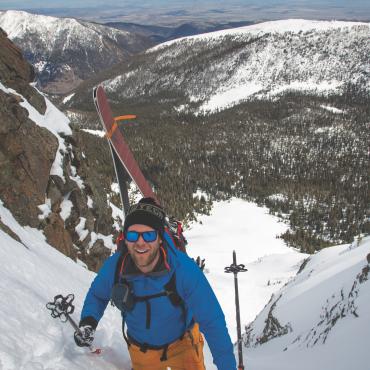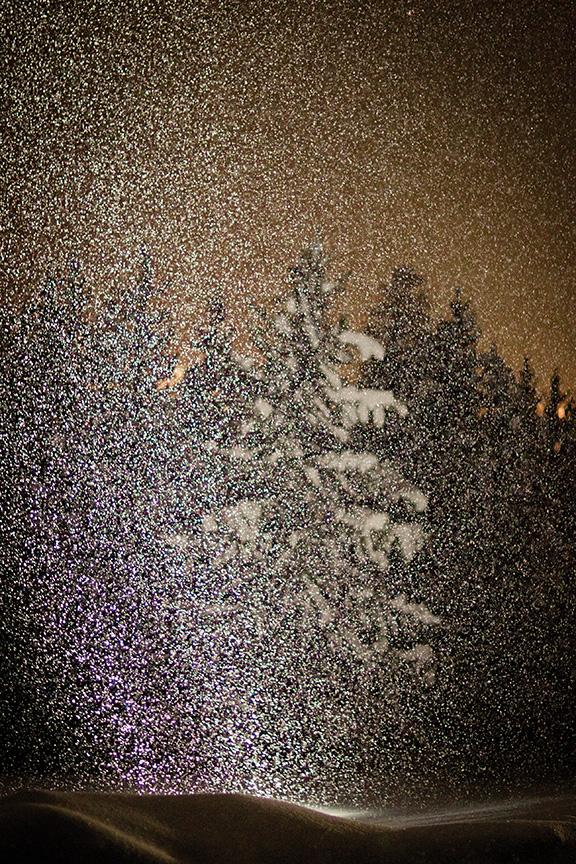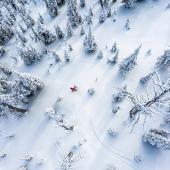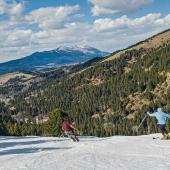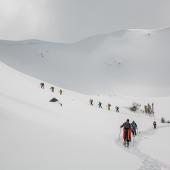The Blue-Light District
When the weather changes, so do we.
“Freedom is something that dies unless it’s used.” —Hunter S. Thompson
When snow is falling, the world changes in ways real and perceived. Our streets hush as normal life forfeits to the frigid siege. Muted voices carry through the storm unseen; passing cars swoosh deliberately through smoky wakes; there’s an inviting softness to even the sound of scraping plow blades on concrete. And all around, damp light bends in mystical ways, reflecting and refracting through fragile, icy lenses. Streetlights take on heavenly auras; headlights a looming slant; flickering neon signs aglow as warm as the spirits they tout. In this rare winter quietude, Bozeman feels older, somehow, wiser and safer—it feels more like home. When snow is falling, Bozeman is as it should be. It is a mountain town.
Stamp inside, and excited speculation drums in rhythm to the storm. Weather is the center of every conversation—well, weather and skiing. Northwest flow, atmospheric rivers, La Nina, it’s all a blue-light special. Comparing this storm to that; to the epic winter of ’96; to 1887, when cows froze standing in the pastures—tragic, yes, but also miraculous. Every person that comes in from the storm, shaking off hoods and slapping out gloves, adds fuel to the collective fire. We warm ourselves with the rare, calm certainty of what’s to come.
On such nights, skiers burn with anticipation. We clap each other on the back and promise to take a lap in the morning. We make plans to do things we once thought impossible—launch that cliff, land that trick, drop that line. We believe we can do these things because when it snows anything is possible. When it snows, we’re free.
"Snow gives us permission to become who we yearn to be, rather than who we ought to be. It frees us to make the wrong choice for the right reasons—skip work, go skiing—a decision more important than any of us might know, because ultimately this choice isn’t about skiing at all."
We need these snowy nights. They change our world, but also give us license to change ourselves. On such nights, we put our faces to the sky and close our eyes in peace. We let the snow fall on our tongues and laugh, because it’s childish. We throw snowballs because we can, and let ourselves dream of a simpler time.
On such nights, the promise of something rare and beautiful and perfect unshackles us from a reality that’s too often ugly and imperfect—it implores us to abandon cynical doubt. Snow gives us permission to become who we yearn to be, rather than who we ought to be. It frees us to make the wrong choice for the right reasons—skip work, go skiing—a decision more important than any of us might know, because ultimately this choice isn’t about skiing at all.
On such nights, when snow falls like it may never stop and we are filled with hope and joy and childlike awe, we are as we should be. We’re skiers. We make our plans and raise our glasses, and trust that the next day will be better than the last. We know it will.

